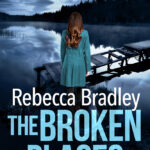If you’re a book lover then you know that there has been another incident of mass racial abuse on Twitter. That or you’ve had your head in a box – or a book maybe!
Children’s Laureate Malorie Blackman gave an interview to Sky where she said that children’s books needed more diversity. It was incorrectly headlined, resulting in a mass barrage of racism towards her on Twitter.

Earlier, she had used Twitter to call for “diversity and inclusion. More books featuring kids/YA with disabilities, LGBT, people of colour, travellers, different cultures, religions pls”
I completely agree with her. We are a world of diverse countries, how can we write about the world we live in and not represent it correctly?
But how does that transfer to the authors? Is the publishing world comfortable and ready for people from all of those groups Malorie Blackman has listed, to become authors in their publishing houses? For many of those groups I’d say yes.
But what about disability? There’s a slight difference with that one. With a disabled author the publishing house has to consider if you are a long-term investment – or so I’ve been told. On multiple occasions. As I’ve been told to tone down my accounting of my life as I live with Ehlers Danlos Syndrome and Postural Orthostatic Tachycardia Syndrome.
We are a diverse world, but I walk on eggshells as I keep writing, in an attempt to keep my slate clean and wonderful people like Malorie Blackman who are already writing wonderful stories get attacked for her views.
I’m not going to tone it down anymore. I can keep writing and be disabled. Yes my life is massively affected, more than I ever thought possible a couple of years ago. If raising awareness, or simply blogging and being honest stops someone taking me on, then that person or place wasn’t right for me anyway.
We need more diversity in our authors as well as in our characters.



Well said! I think books should reflect society and the amazing diversity within. My main moan with quite a few book genres is that they seem to be very white able bodied middle class. I’m sure most readers would like more variety, than that.
Thank you. Your moan is valid and I think that was Malorie Blackman’s point. It’s a shame she has to be attacked in this way for voicing that.
Beautifully said, Rebecca!! I couldn’t agree more that we need all sorts of diversity among authors, and that includes authors with different disabilities. Authors tell stories, whether those stories are true accounts (e.g. a biography or a journal article) or fictional. If those stories don’t represent a wide variety of backgrounds and world views, then they aren’t really describing our world, are they? Among many other things, your being willing to discuss the disabilities you live with means that others get the benefit of better understanding the situation of the disabled. It also means that others with disabilities hear a voice like theirs, if I can put it that way.
You can put it that way and it was a perfect way of saying it Margot, thank you. It was a difficult post to press Publish on. I wasn’t sure on how it would be received. Standing up to be counted isn’t easy, especially when it’s in an area you’re wanting to be accepted into.
Well said indeed. I can’t believe – really, someone told you to tone it down, because publishing houses are like insurance brokers? What about Hilary Mantel, then, who suffered with endiometrosis for years? And I seem to remember reading in an interview that she had an accident or something and still finds it quite painful to move or walk or sit down at her desk for long periods of time.Joan Didion apparently suffers from a (relatively benign) form of MS. Terry Pratchett, poor man, is going down the way of Alzheimer’s. Laura Hillenbrand suffers from Chronic Fatigue Syndrome. And don’t even get me started with all the mental health issues of artists and writers. I think there is diversity out there amongst talented people, and we shouldn’t be afraid to show it.
Thanks Marina. I didn’t realise Terry Pratchett was living with Alzheimer’s. A difficult one indeed. The difference with these authors maybe – is, were they already established before their disabilities came to light? Because yes, more than once I’ve been told that maybe it might be in my best interests…
I think Hilary Mantel wasn’t, but yes, I know what you mean. Much easier for a publisher to ‘accept’ a writer who has a back catalogue to live off.
Keep up the good fight, Rebecca! I hugely admire your courage.
I’ve heard nothing of the Malorie Blackman/Twitter fiasco. What was the Sky headline? (Typical of a Murdoch outlet to get it wrong . . .:))
Thank you. I think the headline was something about her saying we needed less white faces. Talk about twisting what she said. They have since apologised. But as she’s said, the racists haven’t.
I like that you’re not going to tone your writing down…authenticity is what makes writing stand out. 🙂
If you really think about it, we all have something that could hold us back, whether physical or mental. We just have to focus on our strengths and plow forward.
I understand your concerns. The uninformed equate disability with lack of capability. Not the same at all. And to fix those preconceptions, people have to WANT to fix them. Not always the case. I love that you’re not afraid to take a stand.
This is so true, Rebecca and what a great post! Having any kind of disability has nothing to do with creativity. Good work 😀
This is such a relevant post, the publisher’s need to stop being scared. I think things are improving for instance I’ve read a number of books which feature dementia this year, something that wasn’t visible a few years ago but the push for diversity does need to continue to the point where it is natural and author’s like yourself don’t need to ‘fight’ to bring it to the fore.
Unbelievable that publishers should be saying that kind of thing to you. If a ‘boss’ said such a thing to an ’employee’ they’d be laying themselves open to a court case. Glad you’ve decided to ignore them – sounds like they’ve lost touch with reality…